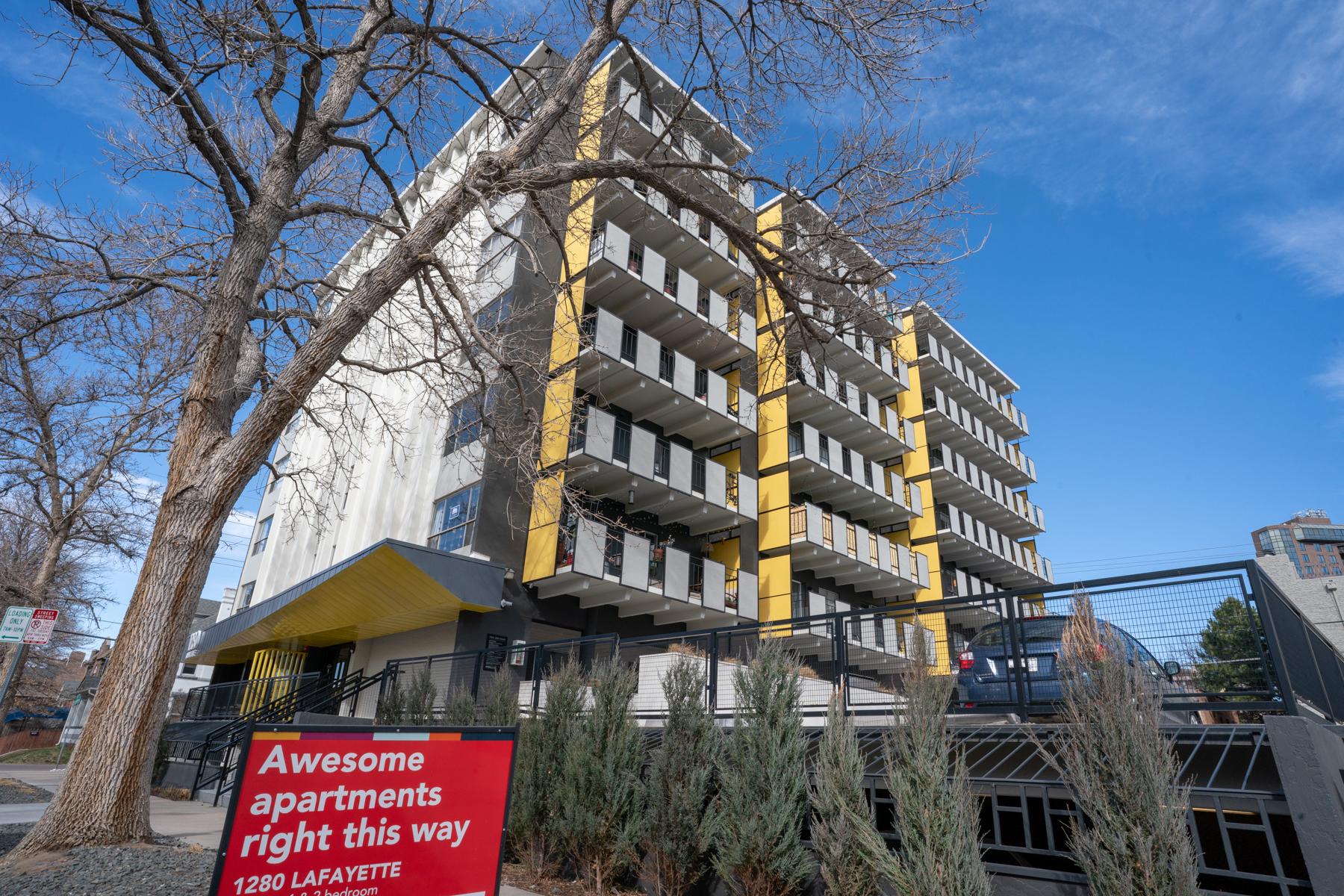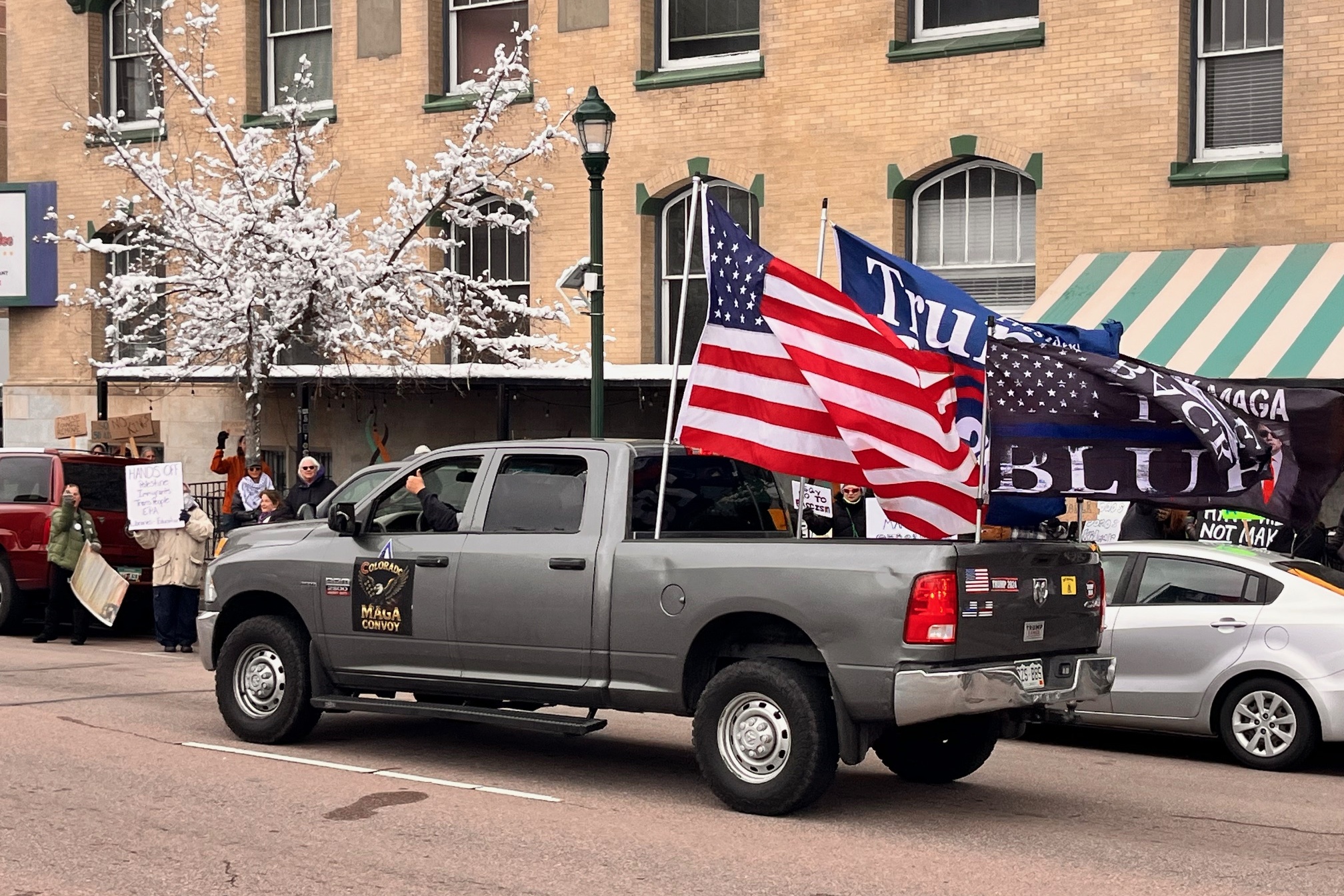Children write words they want to remember on strips of paper around their neck.
The more conversation a child has, with a variety of words, the better equipped he or she is to succeed in school. Low-income children are falling way behind. By the time they are 4 years old, they’ve heard 30 million fewer words than their middle class peers. Colorado Public Radio’s education reporter Jenny Reporter looks at a program working to close that gap.
Here is a transcript of her report:
Sound of kids talking about plants: ...the daylilies, in the morning they bloom and in the night they die…
Reporter Jenny Brundin: A small group of kids hovers over the daylilies and strawberries in the gardens of a northeast Denver elementary school. They explain to me that the daylilies are perennials. They tell me about their lifecycle.
They’re each wearing a necklace with a clip holding dozens of cards, each with a word, kind of like a rolodex, only these are the words they want to remember - like bloom, bulb, and pollination. It’s all part of a strategy to dramatically increase the kids’ vocabulary – and their confidence. Their teacher, Mr. Miller, quizzes them about what happens after a field is tilled.
Ani Allums: Tiny little pieces of whole grains that you sow…
Mr. Miller: Nice remembering that word from yesterday. Sowing.
Allums: …and it grows up to have a head.
Reporter: The garden is the centerpiece for Each One Teach One, a program developed several years ago by educator Mary Ann Bash.
Mary Ann Bash: We had some of the most challenging children who had such aggressive behaviors. To watch them sowing these delicate little lettuce seeds with such care and tenderness, I said OK, the garden is central to the work we must do with kids.
Reporter: Bash developed the after-school program because she knew after years of teaching that many children simply need more repetition and exposure to new words than they typically get at home or in a regular classroom. Studies show it takes at least twelve repetitions to master a new word or concept. And children need to use those new words in conversation too.
Bash: I really think that children’s conversation is a proxy for their confidence, how much they believe in themselves.
Reporter: And she believes when they’re confident, they engage more deeply in school. Take Gianmarco Gadoy. A year ago, he was a struggling third grader, near the bottom of the class.
Gadoy: Like I kind of felt shy. I didn’t like being called on because, I mean, most of the time, I didn’t know what the words were and what it meant.
Reporter: He lobbied the principal to let him join Each One Teach One after school. Almost immediately, he began learning more words. In fact, typically students in the program gain ten to fourteen months of vocabulary growth in just three months of the program. Students not in the program gain only a month during that time.
Gadoy: If you know words, it gives you more experiences and it helps you more in life.
Teacher: And these are humming birds, right? They’re flapping.
Student1: They’re fluttering.
Student 2: They’re hovering.
Teacher: Yep. When they stay in the air like that, they’ve hovering, Very Good.
Reporter: To expand vocabulary, Bash’s method relies on reading a single book very deeply, having big conversations about all the words associated with one word or picture. She has trained teachers on her method, and she says they are skeptical when she tells them it will take 19 days to get through a single book. But once it starts they get it.
Bash: In 19 days, they would typically read 19 books, which means the children get no control, no depth, no breadth, so it revolutionized what teachers understand about what kids need to be able to feel confident about their reading at very young ages.
Reporter: New words learned in the garden are reinforced through reading, writing, art, cooking and fitness. Once students learn 25 to 35 new words from a book, they’re “promoted.” They can teach the book to other kids.
Gadoy: Do you know what this is?
Student: It’s a type of bird. But I don’t know.
Reporter: Gianmarco Gadoy helps his student make connections with other words.
Gadoy: It’s a type of bird. Do you know where it lives?
Student: Hmm.
Gadoy: I’ll give you a hint. It lives in the ocean and it eats fish.
Reporter: Then it’s a detailed process working on the meaning and spelling of the word.
Gadoy: Please write pelican.
Reporter: Maryanne Bash has been supporting her program with grants, offering it through one school. There are lots of success stories with the students, but it will take some precise research proving it works before the District can spend the money to expand it. This year Bash received a major grant through Mile High United Way to serve children at an additional school and to conduct independent research on its effectiveness. Gianmarco Gadoy hopes it passes that test.
Gadoy: I hope in a few years it can expand to some of the schools in Denver because I think it will really change kids’ lives.









